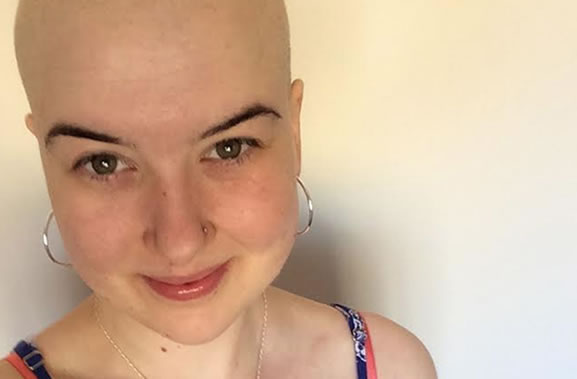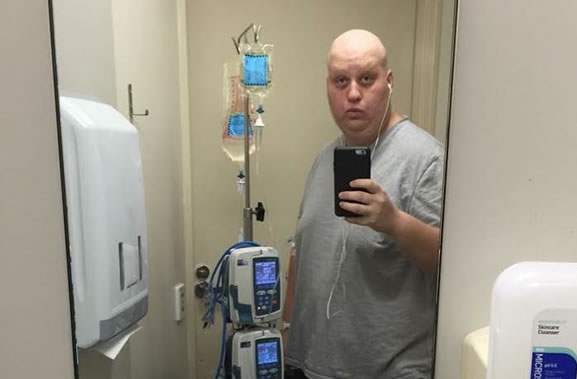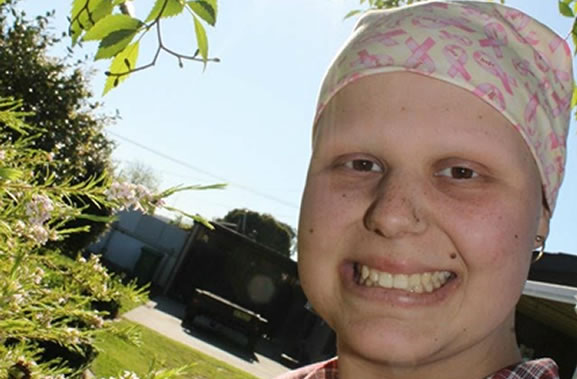3 Young Adult Survivors Open Up About Hair Loss on the 20th Anniversary of World's Greatest Shave
On March 14, more than 20,000 Aussies will to come together to celebrate the 20th anniversary of one of the most loved fundraising events – the Leukaemia Foundation's World’s Greatest Shave.
We love this event for many reasons, but particularly because it turns what tends to be a very scary and overwhelming experience into something empowering and beautiful. Beginning back in Lismore NSW in 1998, the World's Greatest Shave was inspired by a daughter’s love for her Dad going through leukaemia treatment. Twenty years on, more than 1.9 million extraordinary Aussies of all ages have shaved, coloured, waxed, cut ponytails, banished bears and trimmed top knots to help beat blood cancer.
This year, the ponytails snipped from those taking part in the event will now be turned into wigs for cancer patients, shorter hair clippings will be transformed into compost and floating booms to absorb oil spills at sea and empty cans of coloured hairspray will be diverted away from landfill back into recycled resources.
To celebrate the 20th anniversary of this wonderful event and honor our friends at the Leukaemia Foundation, we wanted to get some insight into what it's truly like to lose your hair - and shave it - as a result of cancer. We asked a few members of the You Can Connect community to weigh in.
Laura, 23, Ovarian Cancer Survivor

“My hair started falling out on New Year's Eve, giving a whole new meaning to #newyearnewme! I learnt that hair can make a real mess when it falls out. It was in my bed, on my clothes, on the floor, on the couch, on the bench, in the sink. After two days of carrying around a bucket in attempt to catch the moulting clumps, I bit the bullet and had the rest shaved off. I learnt what it's like to feel the warm summer breeze on my scalp. I loved it. I learnt that a lot of people are freaked out by the sight of a young woman's bare head. Baldness is like a flashing neon sign that blares: “I have cancer”. It is the thing that draws the shocked stares and the pitying looks, and the unhelpful comments ("but you're so young") and unwelcome questions ("are you going to die?"). I learnt that a nightcap is a useful thing to have in order to avoid waking every few hours with a chilly head. For me, losing my hair definitely wasn't the worst thing about having cancer or going through chemo. It was a tiny price to pay for a second chance at life. I learnt to value who I am more than what I look like. (Almost) in the words of Dr Seuss: “A person is a person, no matter how bald.”
Connect with Laura here.
Frazer, 26, Osteoblastic osteosarcoma Survivor

"When I lost my hair it didn't really affect me too much, probably because I had done the World's Greatest Shave twice before! But it really made it hit home that I had cancer. It started falling out 3 weeks after I started treatment once it got to a point where it was really thin I had to get the clippers out. I felt that was the most sick I ever looked."
Connect with Frazer here.
Bree, 21, Osteosarcoma Survivor

"I tried to not let my hair loss affect me. But secretly it did. I was at the age where looks mattered, and your hair made you who ou are. I didn't realise how tough it was to lose your hair until I got stared at in every public place. Losing hair really did make it noticeable that I "wasn't normal" and I had cancer. Losing my hair made me come to terms with illness. Although, on the plus side. it was nice waking up 10 minutes before leaving anywhere and not having to do your hair and it was nice and cool in summer."
Connect with Bree here.
---
Did you participate in the World's Greatest Shave, or shave your head on your own? Share your experience in the comments below.
About The Leukaemia Foundation: The Leukaemia Foundation is the only national charity dedicated to helping more Australians survive blood cancer and live a better quality of life. Leukaemia, lymphoma, myeloma and related blood disorders are all types of blood cancer, which can develop in anyone, of any age, at any time.
More than 60,000 Australians are living with blood cancer or related disorders, and the equivalent of one person every 41 minutes is diagnosed. Although research is improving survival, sadly an Australian loses their life to blood cancer every two hours, claiming more lives than breast cancer and melanoma. For more information, please visit leukaemia.org.au.








We’re the people working behind the scenes to make You Can Connect the best it can be for you. We thought we’d make our own profile to introduce ourselves in case you haven’t heard of You Can. Back in 2010, Sony Foundation Australia launched You Can to address a gap in the medical system to support adolescent and young adults with cancer in Australia. We raise funds and build You Can youth cancer centres across the country to provide a space in hospitals that is just for young people to ensure care and support is tailored towards YOU, not children, and not old people, YOU. Feel free to drop us a line, we’d love to hear from you.